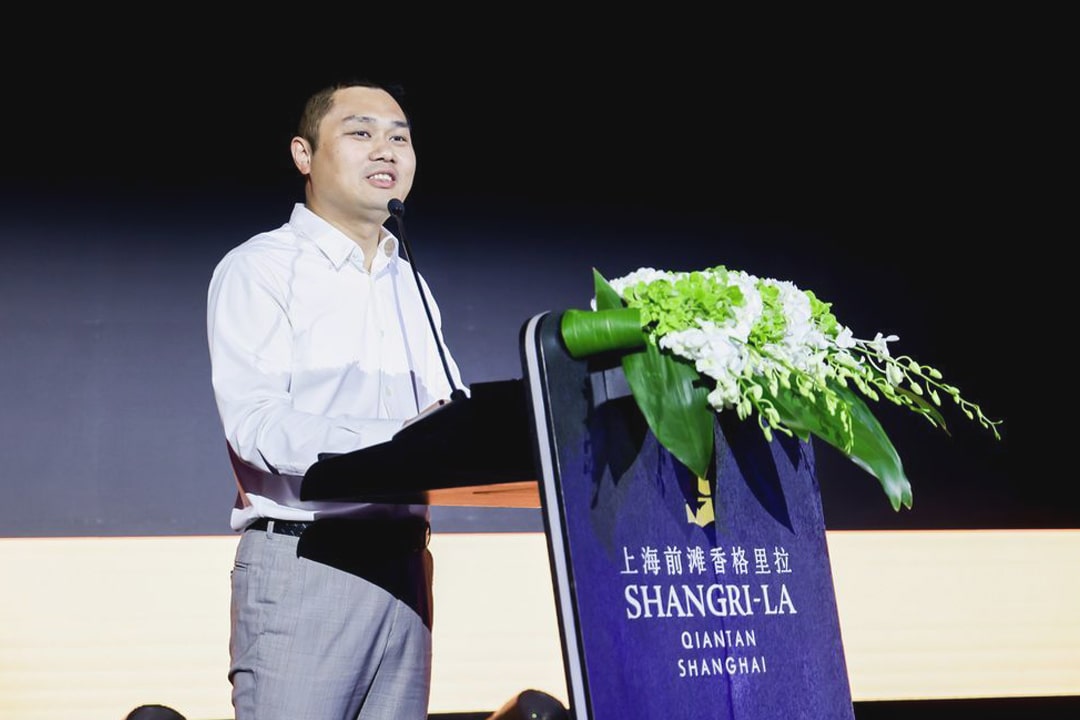Meituan just wrapped up its most tumultuous quarter in over a year.
Buzz around its food delivery and flash commerce battles only began to surface in the first quarter, but it was already enough to stir both curiosity and concern.
On paper, Meituan’s first-quarter results either met or exceeded expectations. Revenue rose 18.1% year-on-year (YoY) to RMB 86.6 billion (USD 12.1 billion), and adjusted net profit climbed to RMB 1 billion (USD 140 million). Its core local commerce segment reported a 17.8% revenue increase to RMB 64.3 billion (USD 9 billion), while the new initiatives segment posted double-digit growth and narrower losses.
Still, these gains were quickly tempered by uncertainty about the next quarter. Management declined to offer full guidance for Q2 or 2025, citing the unpredictable nature of the current “irrational” competition. Asked about intensifying rivalry in food delivery, CEO Wang Xing said bluntly, “We are prepared to do whatever it takes to win the fight.” He added, “RMB 10 billion here, RMB 10 billion there. It seems every internet player wants to chip in.” The implication: the fight ahead will be costly.
Even as Meituan contends with these challenges at home, its new ventures can’t afford to stall. Since April, the company has been accelerating its overseas expansion. Keeta is growing in the Middle East. Xiaoxiang Supermarket, launched abroad at the end of 2024, has debuted in parts of Riyadh under the Keemart brand. Brazil is now its beachhead for Latin America. Meituan also marked Keeta’s two-year anniversary in Hong Kong.
For Meituan, internationalization and artificial intelligence represent long-term priorities requiring bold investment. But for now, its focus remains on on-demand delivery, its stronghold and most urgent front to defend.
Naturally, that comes with rising costs. Wang said spending will increase under the premise of fair and orderly competition, but warned that core local commerce revenue growth will likely slow in Q2, with operating profit facing a sharp year-on-year decline.
Long seen as a serial winner, Wang urged stakeholders to look beyond near-term volatility and focus on Meituan’s long-term advantages and potential for sustainable growth.

In food delivery, Meituan intends to “win the fight”
Within Meituan’s local commerce segment, food delivery is now the main focus. After a period of pressure from Douyin on its in-store dining and travel services, that front has stabilized. The new flashpoint is takeout.
The delivery battle began to brew in late 2024 and erupted in February this year, triggered by JD.com’s entry. Meituan went on the defensive, and Alibaba’s Ele.me soon joined the fray.
Each platform has reported a surge in orders. JD said its daily orders topped 20 million as of May 14. Then on May 26, Taobao and Ele.me jointly claimed 40 million daily orders, 25% of which came from beverages. Non-food items also saw strong, unexpected growth.
The market appears to be expanding. Subsidies have reignited dormant demand, and the overall order increase suggests new consumption rather than user churn between platforms. For Meituan, more mid-frequency users are becoming high-frequency ones.
So how has Meituan fared?
In Q1, food delivery orders grew 9–10% YoY, supported by initiatives like Pinhaofan and Shenqiangshou. The latter saw a 50% jump in order volume and now accounts for a larger share of overall business. Despite mounting Q2 pressure, multiple investment banks estimate Meituan’s food delivery orders are still growing at around 10%.
That growth, however, is subsidy-driven. A source close to Meituan’s delivery unit told 36Kr that JD’s entry initially appeared to be a promotional splash without a sustainable model. But once JD started heavily subsidizing beverage and coffee orders, especially from brands like Cotti Coffee, Meituan responded in late March and early April. The company later confirmed significant growth in beverage sales in April and May.
Meituan has since expanded its subsidies. For instance, Shenqiangshou orders over RMB 45 (USD 6.3) now receive an 80% rebate on technical service fees. On May 21, Shenqiangshou crossed ten million daily orders.
Wang has made clear that the intention is to “win the fight.” But the cost will be high. Morgan Stanley expects Meituan’s Q2 operating profit from food delivery to decline 24% YoY. Goldman Sachs projects a per-order profit drop of RMB 0.6–1.1 (USD 0.08–0.15) over the next three quarters, amounting to a 33% full-year decline for the segment.
Still, Wang expressed confidence. Meituan has survived previous rounds of intense competition. He cautioned, however, that the current wave of subsidies is irrational and unsustainable.
Meituan’s advantage remains its scale. More than 14.5 million merchants and an in-house logistics network handling over 60% of deliveries. That infrastructure remains a key defensive moat.
Food delivery is also linked to a broader push for e-commerce market share. Meituan Instashopping, the company’s on-demand retail platform, is emerging as a strategic asset.
In Q1, Instashopping outpaced food delivery in growth, with order volume tripling and non-food categories up more than 60%. The platform surpassed 500 million transacting users. Daily active users peaked at 6.5 million, with Gen Z users accounting for more than half. On the supply side, 30,000 stores have joined, including over 10,000 convenience stores. Others span electronics, cosmetics, baby products, pet supplies, and fashion.
Instashopping reflects a shift in consumer behavior. At an industry event in October 2024, Wang Puzhong, head of local commerce at Meituan, said quick commerce is no longer just for emergencies. Instead, it signals a psychological shift. “It represents high certainty in life, whereby there’s no planning, no stockpiling, with everything delivered on demand,” Wang said.

In April, the local commerce head reiterated on social media that the goal is to replace traditional e-commerce logistics with a “30-minute-to-home” model. Instashopping is expected to push deeper into categories like appliances and fashion, long dominated by JD and Tmall.
That growth requires spending. Investment banks estimate that Q2 order volume will rise 27% year-on-year, but the platform is expected to post a loss due to promotions for the 618 shopping festival. On May 27, Meituan confirmed its participation. A 36Kr price check found a 500 ml bottle of Wuliangye (8th edition, 52%) priced at RMB 850–860 (USD 119–120.4), RMB 100–150 (USD 14–21) cheaper than on Tmall or JD, and lower than Sam’s Club.
Between food delivery and Instashopping, Meituan’s local commerce segment is bracing for slower revenue growth and a sharp drop in profit. But the ultimate stance is clear: Meituan intends to win.
Ambitions abroad, and a bet on AI
From Hong Kong to Saudi Arabia, Keeta’s expansion has fueled optimism around Meituan’s international ambitions, though not without cost.
In Q1, new initiatives revenue rose 19.2% YoY to RMB 22.2 billion (USD 3.1 billion), led by platforms like Kuailv, Youxuan, Xiaoxiang, and international operations. Still, quarterly losses widened from RMB 2.2 billion (USD 308 million) to RMB 2.3 billion (USD 322 million), driven by global expansion spending.
Hong Kong, Keeta’s first overseas market, was a clear early success. Within a year, it overtook Deliveroo in market share. Deliveroo cited intense competition in its 2024 annual report and exited in March. Keeta grew by paying riders more, charging merchants less, and heavily subsidizing consumers. “A year after Keeta entered, it handled 85% of our takeout orders, while Deliveroo was in the single digits,” one restaurant told local media.
But growth through subsidies comes with friction. In May, riders protested new pay structures and changes to order dispatch. Public goodwill, it turns out, is as important as operational efficiency.
In Saudi Arabia, Keeta now operates in nine cities, covering all major urban centers. A staff member in Riyadh said it has become the third largest player and is pushing for the top spot. Its strategy of using deep discounts to pressure incumbents remains intact.
On May 22, Meituan also launched Keemart in Riyadh. The warehouse-style retail business offers groceries and household essentials via the Keeta app, now serving the Al Yasmin and Granada districts. Full city coverage is planned by year’s end.
The latest international move: a USD 1 billion investment in Brazil over five years. It marks Meituan’s formal entry into Latin America, where it will compete with iFood and Didi. Local commerce head Wang has pushed back on views that these markets are small. He sees Saudi Arabia and Brazil as future growth engines, and says Meituan will proceed cautiously, evaluating each move.
Morgan Stanley expects Keeta’s losses could reach RMB 6–7 billion (USD 840–980 million) this year.
AI is Meituan’s other long-term bet. On the earnings call, the company outlined a three-pronged strategy: building large language models (LLMs), deploying AI tools internally, and integrating AI into customer-facing products.
A key launch is coming in June: Kangaroo Advice, an AI-driven business assistant to help merchants with location scouting, cuisine selection, menu design, and operations.
Internally, Meituan has already rolled out NoCode, an AI programming platform. The company claimed that 52% of Meituan’s new code is now AI-generated, and some teams see over 90% adoption. “Our goal is 100% adoption among engineers,” he said.
Meituan has fought and won many competitive battles, from group-buying to food delivery. It has also weathered doubt when previous bets, like Youxuan, failed to meet expectations. Now, it finds itself fighting on familiar ground while reaching for new frontiers. The challenge: staying focused on the current fight without losing sight of the future.
KrASIA Connection features translated and adapted content that was originally published by 36Kr. This article was written by Ren Cairu for 36Kr.

